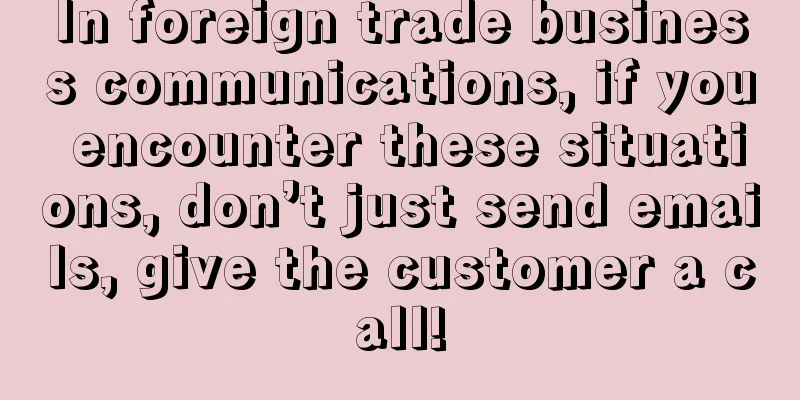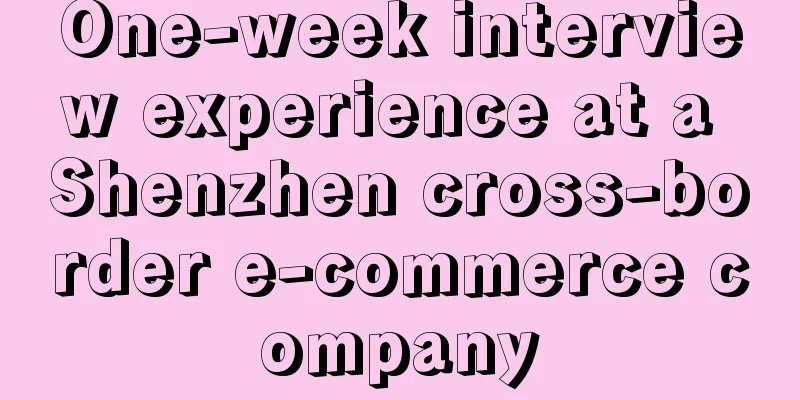|
In the foreign trade industry, developing customers still mainly relies on emails for communication. Emails have many advantages, but also have disadvantages such as time lag and low response rate. In today's fiercely competitive world, it is not so easy to really close a deal by simply sending emails. Phone calls, face-to-face meetings, etc. are required to achieve success in one fell swoop. Mr. Liu, a foreign trade worker, has encountered some problems. A typical example is that he once contacted an Australian customer. The two sides exchanged emails frequently, and the customer asked a lot of questions about the product. Mr. Liu answered them carefully one by one. The good interactive communication made Mr. Liu think that the deal would be done soon. But a few weeks later, the customer never replied to the email again. Mr. Liu was very puzzled. It took a long time before he thought of calling the customer company to ask. As a result, he learned that the person who contacted him by email had resigned. Moreover, Mr. Liu made the call late, and the other company had already chosen a product from the same industry, which made Mr. Liu regretful. If he had called earlier, the consequences might have been different.
There is another situation where you need to communicate by phone, that is, when you encounter slander from your peers, and it is difficult to explain clearly through emails. At this time, it is best to make a phone call. A sincere tone and sincere communication will dispel the customer's doubts. Xiaomei, a foreign trade staff member, once handled such a situation perfectly. At that time, when Xiaomei was in close contact with the intended customer, the customer suddenly became cold and questioned Xiaomei's products. This made Xiaomei suspicious, and then she called the other party during working hours to find out what was going on. After learning about the slander from her peers, Xiaomei immediately responded flexibly and made the customer feel her sincerity. In the end, she turned the game around and converted the potential customer into a real customer. In foreign trade business communication, there are many situations that are difficult to resolve through emails, and it is best to call directly. The following summarizes these four situations. It is best to call directly, and the effect will be much better than simply sending emails. When the other party has not responded If the other party has not replied, do not continue to send emails to inquire. There must be a reason, and the reason may be that the other party did not see the email, the other party resigned, the other party does not want to buy, the other party felt that there was a problem but it was difficult to explain through email and gave up... Therefore, if the early talks were good and the other party has not replied, do not hesitate, pick up the phone quickly and get the customer's information. At the same time, it is best to let the other party feel your sincerity and warmth in your wording. When it is difficult to express yourself through email For example, Xiaomei's problem is not easy to express through email. Instead of sending emails, it is better to make a phone call. For example, sample specifications, special requirements of customers, some details when signing a contract, and proposal details, etc., need to be communicated efficiently by phone. Making a phone call can make customers feel your "service" and "sincerity" intuitively, and communication is also more convenient. When customers are hesitant about a product If a potential customer sends an email saying "I'm not sure I can sell this internally.", it means that the customer is interested but is still in the trial period. On the other hand, the customer may also say this to other sellers. Therefore, there is hope. It depends on how to grasp the opportunity. What needs to be done at this time is to quickly leave a good impression on the customer and dispel the customer's doubts. It is difficult to do this through email, but there is no such limitation when making a phone call. When you want to follow up with the customer again Excellent foreign trade salespeople are well aware of one thing: a transaction is over, but the relationship with the customer does not end. If the customer is very satisfied with the product and has subsequent order requirements, and you are also trying to increase the sales quota, you can contact the customer by phone, ask about the customer's recent situation, understand the customer's intention for the product, and actively ask if they need help. The second transaction is often completed naturally during the telephone communication. When customers have new developments As the saying goes, "No one comes to the temple for no reason." You also need new topics when you make phone calls. If you find on social networking sites that a customer has released a new product or attended an exhibition or has other new developments, calling him at this time will make him feel that you value him. This is also a good topic. Customers will definitely like to discuss this issue. Pay attention to asking more open-ended questions when you make a phone call, so that you can have more things to talk about with the customer, and in this way, you will virtually establish a good relationship with the customer. When the customer needs the same product again, the first person he thinks of will be you. When you have a certain communication foundation When developing new customers, the foreign trade industry generally chooses to contact them through emails. Emails have their own advantages, such as being less abrupt and being able to screen out potential customers. When customers reply to emails, it means that they want to communicate further. At this time, you can arrange a time to call, exchange pleasantries, and establish a further relationship with the customer. In short, the essence of cooperation is communication. The correct way is to make good use of various communication tools such as emails and telephones to convey your information and interact with customers. Regardless of email or telephone contact, the ultimate goal is to close a deal. Therefore, when communicating, you need to adapt to local conditions and be flexible. For example, although email is not convenient enough, it also has its own advantages. Although telephones have many advantages, they also have time difference problems. The best way is to use different tools to achieve the final deal.
|










